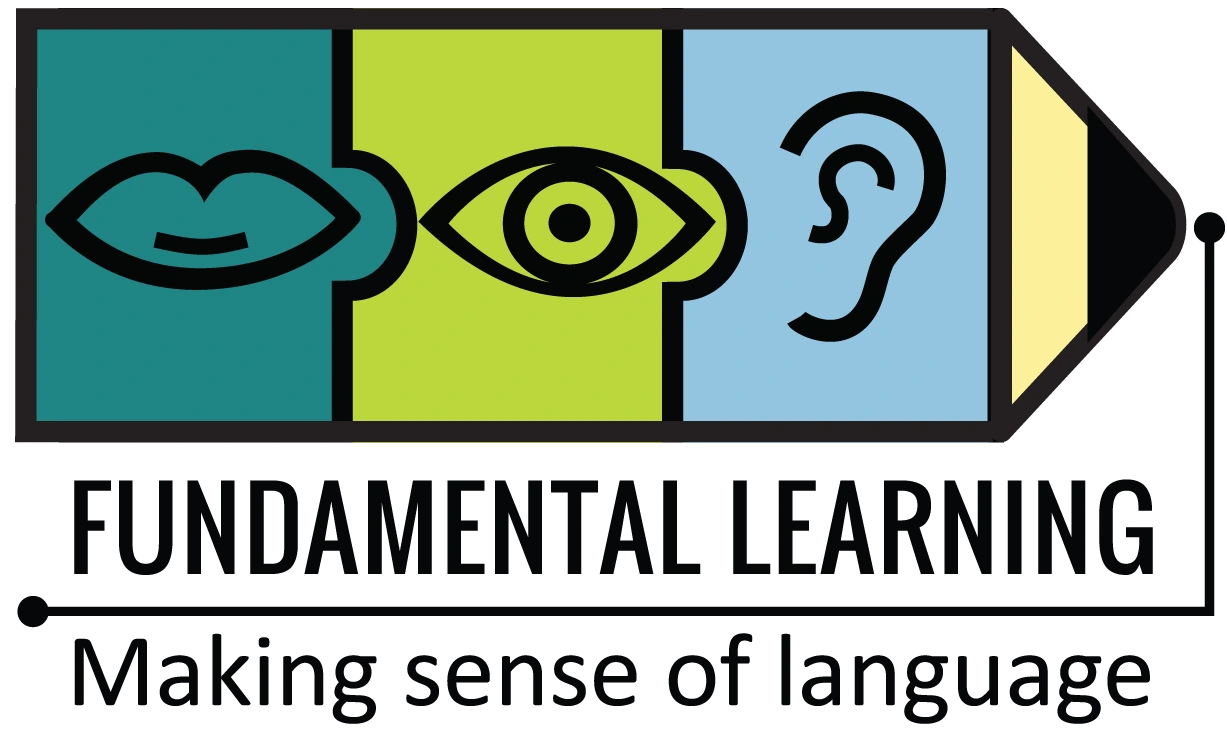Course outlines
Fundamentals (Formerly Known As Foundations) Course Topics
The FUNDAMENTALS (Foundations) course is the prerequisite course for ALL O-G training with Fundamental Learning. It is NOT intended to be a stand-alone course for anyone wishing to teach using the Orton-Gillingham approach. It is only the FIRST PART of the Classroom Educator or
Associate level training and is not meant to be taken in isolation without further study.
Fundamentals provides an overview of the processes underlying literacy development; current research in the fields of reading, writing, spelling, and dyslexia; the scientific study of language and its structure; and introduces the O-G approach.
It is suited to teachers of any age group or level, speech-language pathologists, tutors, parents, or anyone who wants to understand English! You will be provided with extensive materials to support your learning and to start building your toolkit.
After completion of Fundamentals, you are strongly encouraged to continue on with the Associate Level training. This is a requirement if you will be working with students in a 1:1 remedial situation, and/or if you wish to pursue Academy certification at the Associate level. For those working in classrooms, there is also a Classroom Educator course that is targeted to application in the classroom. I highly encourage anyone working in the Classroom to complete all 3 training sessions as you will gain additional knowledge, be provided with more materials, and learn
various strategies in each course.
Prerequisites:
Requirements to receive Certificate of Course:
Associate Course Topics
The ASSOCIATE level training course continues working with the concepts introduced in Foundations with a more in-depth immersion into the linguistic structure of language, exploring the relationships between phonology, morphology, and etymology, as well as the History of the English Language. There is additional coursework in assessment, profile development, progress monitoring, diagnostic and prescriptive teaching, in-depth student error analysis, vocabulary development, basic grammar, as well as practice in designing and delivering O-G lessons.
A practicum is required for certification wtih OGA (Orton-Gillingham Academy).
See below for more information.
Prerequisites:
Requirements to receive Certificate of Course:
Classroom Educator Course Topics
Fundamentals (Formerly Known As Foundations) Course Topics
The CLASSROOM EDUCATOR level training course is specifically designed to equip teachers with tools and resources to deliver beginning literacy instruction in the classroom. Trainees walk away with a multitude of materials and ideas to use in the classroom, small groups or with individual students.
Utilizing direct instruction, teachers bring a multisensory, structured, sequential, phonics and linguistic approach into the mainstream classroom. The Classroom Educator is qualified to apply the principles of the Orton-Gillingham Approach to modify and provide literacy instruction for the classroom or small groups ONLY within the school setting (Tier 1). Trainees who wish to provide remedial support need to take the Associate Practitioner course.
A practicum is required for certification wtih OGA (Orton-Gillingham Academy).
See below for more information.
Prerequisites:
Requirements to receive Certificate of Course:
Certified Course Topics
The CERTIFIED level training course consists of an additional 100 hours of advanced coursework which includes current research, study of the brain, dyslexia and related difficulties, language structure, writing, grammar, morphology, etymology, assessment, error analysis, organization and study skills, technology, lesson planning and using O-G strategies across subject areas.
This is a general guideline as to how the Certified level curriculum will be covered; however, in an advanced level course, there is an expectation that the particular topics and methods will be adapted to suit the needs of the course participants. Trainees should be prepared for an intensive course of study that will involve active participation, completion of readings and assignments beyond the in-class hours.
A practicum is required for certification wtih OGA (Orton-Gillingham Academy).
See below for more information.
Prerequisites:
Requirements to receive Certificate of Course:
Practicum
A practicum is REQUIRED to apply for certification as an Associate Practitioner or Classroom Educator with the Academy.
After completion of ALL requirements, trainees may apply for a practicum.
Limited space is available and requires a strong commitment to learning, self-evaluation and reflection, as well a strong level of competency with the material in the course.
If you are interested in a practicum, please indicate when you submit the registration form.
*Please note there is no guarantee of a practicum placement.
If trainees are not yet ready for a practicum at the completion of the course, they may audit future courses to develop their skills and knowledge and apply again at a later time.
Please refer to Practicum – Frequently Asked Questions for further information.
An associate level Practicum consist of 100 Hours teaching a student with 10 Observations Over the course of a minimum 8 months.
A CLASSROOM EDUCATOR practicum consists of 50 hours teaching a student with 5 observations over the course of a MINIMUM of 8 months.

